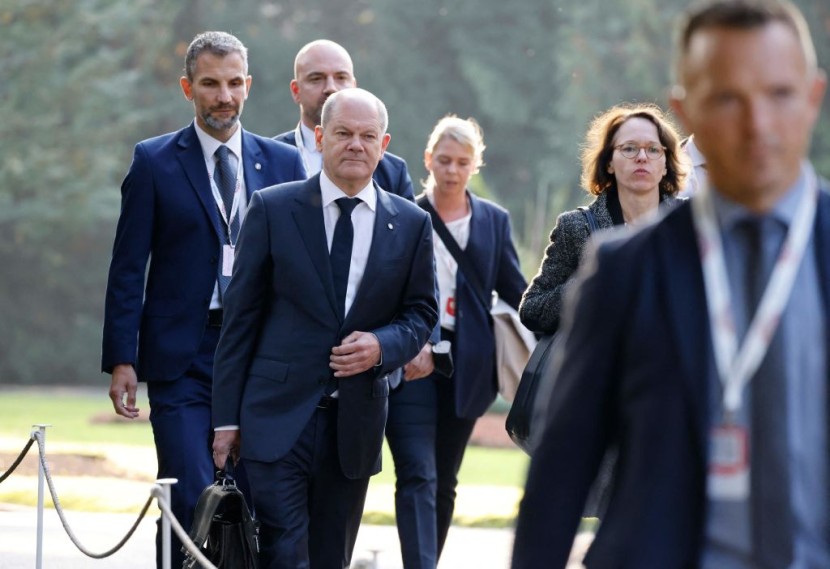
Germany got criticized by several EU states that were concerned about the inequity caused by the energy crisis by banning Russian oil and natural gas. Berlin's establishment of a €200 billion shield was a concern last Friday during a summit in Prague to hammer out a solution to the energy crunch.
EU Members Disagree on Oil Price Cap
No decisions were expected, and the talks between the EU leaders would move on to the energy question. A conclusion is expected at their regular EU summit scheduled for October 20-21, reported Euractiv.
However, factions were obvious before representatives started discussing how to decrease energy bills and guarantee cold-weather gas resources.
Before the meeting, most EU members requested that Brussels recommend a cap on wholesale gas prices. Nevertheless, EU capitals take issue with how a ceiling must be put in place, with some remaining suspicious of establishing any at all, noted the North Brief.
Those EU states opposed to the gas price cap include Germany, Denmark, and the Netherlands, who are concerned that such a move would force suppliers to provide the necessary gas supplies hampered by the energy crisis.
Union Needs Market Intervention
A dynamic price corridor, as recommended by Poland, Greece, Italy, and Belgium, would regulate a volatile gas market by keeping the price of gas stable, citing Yahoo! Finance.
By letting some transactions go well above the set price, the corridor might allay concerns regarding Europe's competitiveness in Russian gas marketplaces.
Belgian Prime Minister Alexander De Croo added that market intervention is required because these costs are prohibitively high. There are already three members interested, bringing the total to 24 for the price limit.
Several Irish and Italian government representatives said that action must be taken to reach a deal, but the departing Italian leader, Mario Draghi, said that progress is being made.
The European Commission is also anticipated to continue discussions with providers to reduce gas prices and proclaim new revenue under the REPowerEU plan to abandon Russian petroleum products.
At the same time, Ursula von der Leyen, President of the European Commission, stated during a media briefing that they would be searching for extra funding on a European level to ensure that all member countries have the same chance to invest in the change.
By December 2022, Brussels will propose additional strategies for restructuring the electricity market.
Disgruntlement over Germany's controversial €200 billion business funding package obscured the EU leaders' conference.
The interactions, which varied from frustration to uproar, revealed a significant gap between Berlin and those EU citizens who prefer greater unity.
Poland has accused Berlin of wrecking the Eurozone's internal market by assisting its own companies while disputing a gas price ceiling across the continent.
Mateusz Morawiecki, the prime minister of Poland, emphasizes that Berlin is taking advantage of the crisis to gain a competitive advantage.
The Polish PM said the difference between rich and poor EU nations must be equalized. Seeing Germany with more means to deal with the energy crisis, several EU states wanted a gas price cap that Berlin saw as dangerous though others saw inequity and disunity in the bloc.
Related Article: Bloc Leaders To Discuss Major Issues Including Energy Price Cap, Fallout from Loss of Stability and Security
© 2025 HNGN, All rights reserved. Do not reproduce without permission.








